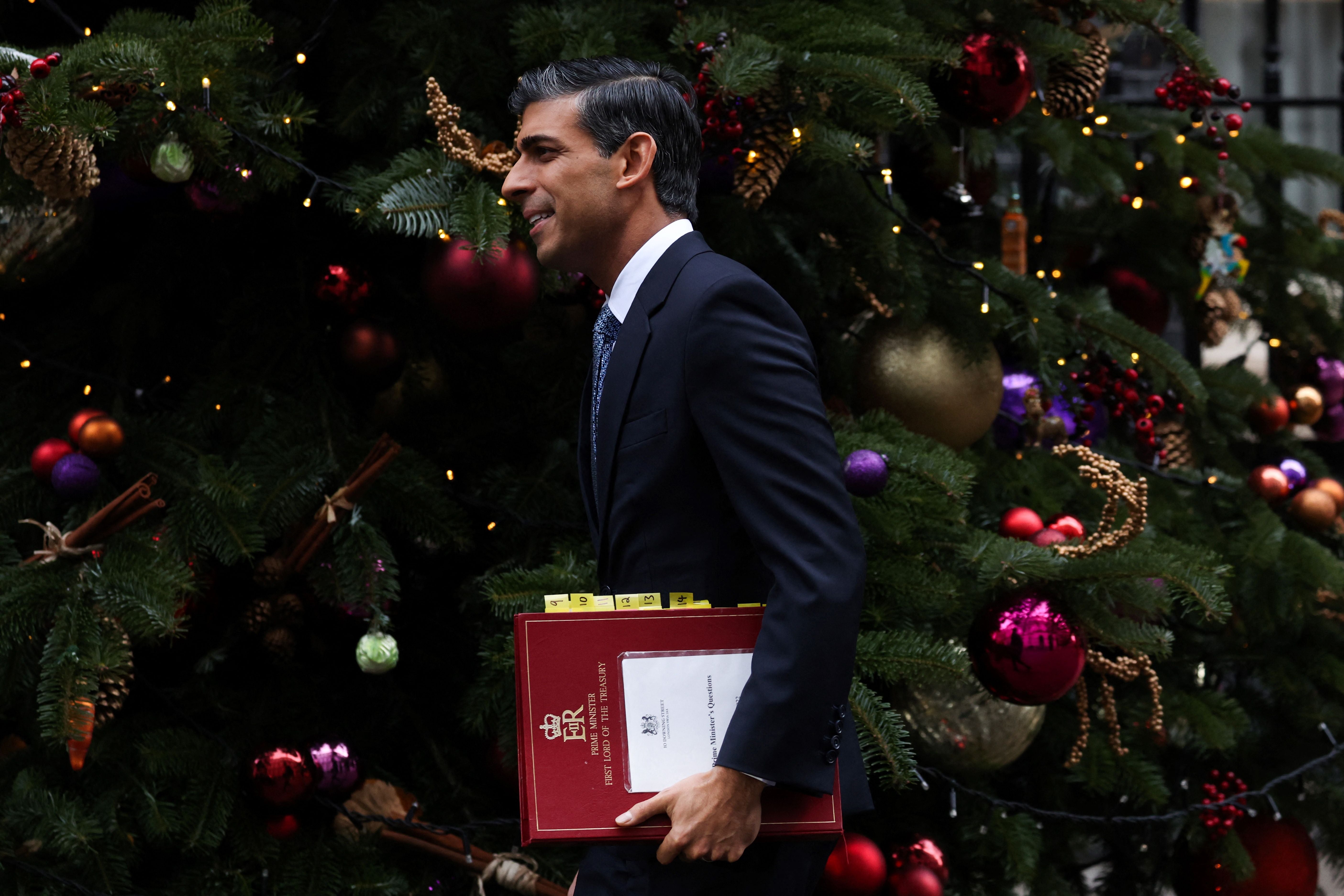Covid border checks are sensible – but the government cannot fall back into constant U-turns
The government’s change of tack on coronavirus testing for arrivals from China hardly inspires confidence

One of the promises of Rishi Sunak’s government was that it would hold itself to a higher standard of integrity than that of Boris Johnson. Another was that it would understand the rules of arithmetic better than that of Liz Truss. A third was that it would be more competent than either.
This third appears to include making faster U-turns. One moment the government had no plans to require coronavirus tests for arrivals from China; the next, it not only had plans but had announced that all travellers from China to the UK would be required to take a pre-departure test.
This is more efficient government of a kind. Switching from the wrong position to the right one is better than persisting in an error, and the more quickly it is done, the better. That said, the way the policy has been reversed may needlessly alarm people and divert attention from other public health issues.
Steve Barclay, the health secretary, should have been more explicit about the differences between now and the start of the worldwide spread of coronavirus in early 2020. The biggest difference is that the UK population is now largely vaccinated: we are at no greater risk from a virus arriving from China than from those already circulating here. Testing arrivals is “precautionary”, as Mr Barclay said, but he should have been clearer that, although the information flow from China’s government is poor, there is, as yet, no evidence of new variants that might pose a larger threat.
There was no harm in using the announcement of the tests as a reminder to people to get vaccinated or boosted, but it should have been accompanied by the message that, because of the vaccines, this kind of precautionary testing is extremely unlikely to be the harbinger of a return to coronavirus restrictions across the UK.
The after-effects of the pandemic are now a much greater threat to public health than the virus itself. Backlogs and staff shortages – including in the social care sector, which is now a significant bottleneck for hospitals – mean that parts of the National Health Service remain in permanent crisis. As The Independent has reported, several NHS trusts are declaring critical incidents simply because they have reached the limits of their capacity, while many A&E departments resemble war zones, with patients lying on the floor and ambulances still queueing up outside.
To keep up to speed with all the latest opinions and comment, sign up to our free weekly Voices Dispatches newsletter by clicking here
Against this background, a prompt U-turn on a low-risk issue seems like a minor problem, but it is unfortunate if it gives the appearance of a government not entirely in control of events. If Mr Sunak and Mr Barclay cannot get a simple decision on precautionary testing of arrivals from China right first time, it undermines confidence in their ability to resolve the crisis in the NHS, which is more urgent and more important.
So far – and he has been prime minister for only 67 days – Mr Sunak has done a good job of slowing the pace of the government news cycle, and of appearing to pay attention to the detail of policy. He has impressed in his decisions on tax and spending in the autumn statement, and in his early statement on the asylum system. This bodes well for his claim to competence, but he has yet to demonstrate that he is getting a grip on the crisis in the NHS.
He spoke in general terms during his leadership campaign against Ms Truss about the need for a focused, target-driven approach to identifying the pinch points in the NHS and addressing them rigorously. Let us have fewer panicky-looking U-turns, and more of that kind of calm determination to get to grips with one of the greatest challenges facing the nation.



Join our commenting forum
Join thought-provoking conversations, follow other Independent readers and see their replies
Comments